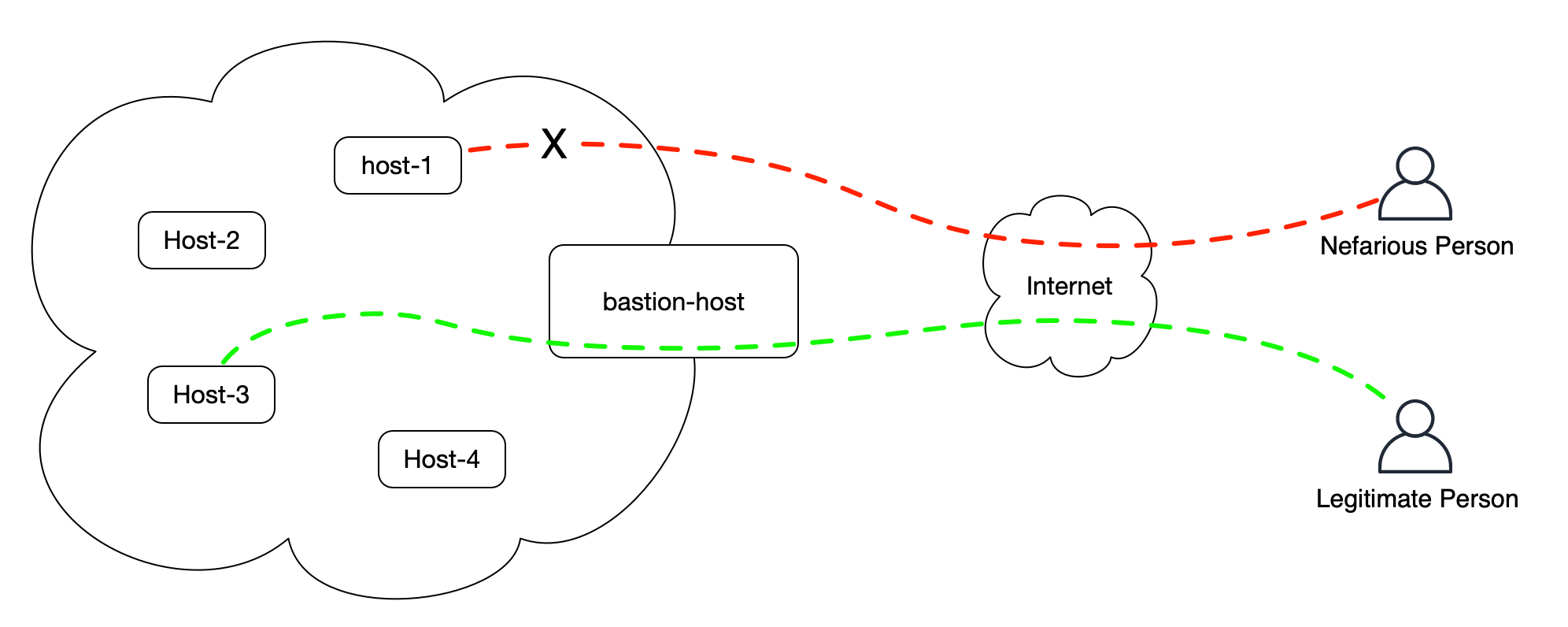Using a bastion host with SSH
Key Points
- Bastion hosts limit the attack surface of critical devices.
- Use the
-Joption withsshto automatically proxy connections through a bastion host:ssh -A -J bastion-host-1.example.org host-3.example.org. - Multiple host can be specified in the
-Joption:ssh -A -J bastion-host-1.example.org,bastion-host-2.example.org host-3.example.org
Overview
An ssh bastion host is a server that sits between the secure inside network and the insecure outside network. Connections to a host on the inside must be proxied through the bastion host, direct access is not allowed. Bastion hosts reduce the attack surface by only exposing a single host to the untrusted network. In addition, bastion hosts are hardened devices, closely monitored, regularly patched, and limit services to ssh only.
There are a variety of ways to configure the bastion host environment. In this example, we will assume all systems are directly connected to the public Internet, but their host-based-firewalls block all communication except for ssh from the bastion-host:
Details
The Old Way
Prior to the -J option, connecting through a bastion host was a manual operation. A user first connects to the bastion host, then creates another connection to the final destination. Similar to this:
jemurray@jasons-mbp:~ $ ssh -A bastion-host-1.example.org
jemurray@bastion-host-1:~$
jemurray@bastion-host-1:~$ ssh host-3.example.org
jemurray@host-3:~ $
Another option is to use the more complex -o ProxyCommand= option:
jemurray@jasons-mbp:~ $ ssh -o ProxyCommand="ssh -W %h:%p bastion-host-1.example.org" host-3.example.org
jemurray@host-3:~ $
The New Way
Starting with ssh version 7.3, the -J (jump host) option was introduced. Users no longer need to perform a manual double-hop or remember the complex ProxyCommand syntax.
Connecting to a remote server with a single bastion:
jemurray@jasons-mbp:~ $ ssh -A -J bastion-host-1.example.org host-3.example.org
jemurray@host-3:~ $
Connecting to a remote server with multiple bastion hosts:
jemurray@jasons-mbp:~ $ ssh -A -J bastion-host-1.example.org,bastion-host-2.example.org host-3.example.org
jemurray@host-3:~ $
Connecting to a remote server with multiple bastion hosts and different usernames:
jemurray@jasons-mbp:~ $ ssh -A -J user1@bastion-host-1.example.org,user2@bastion-host-2.example.org user3@host-3.example.org
jemurray@host-3:~ $
